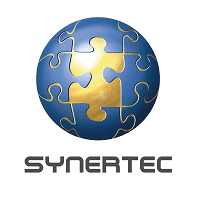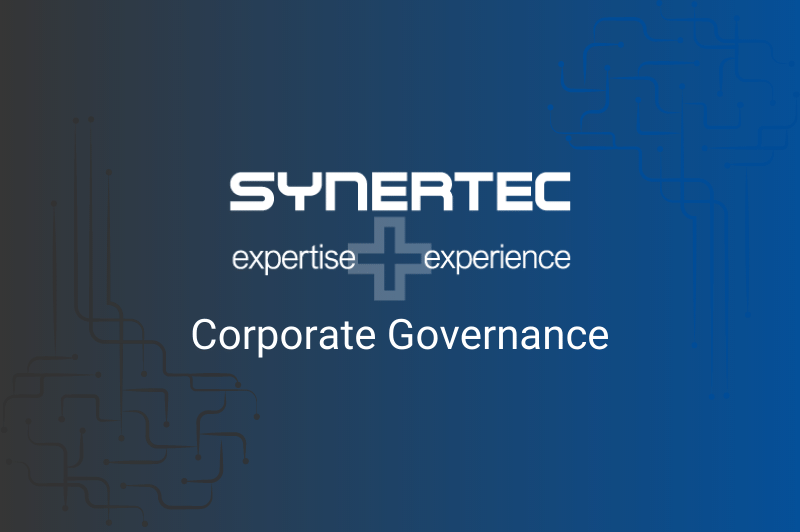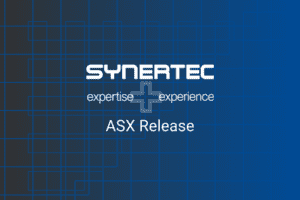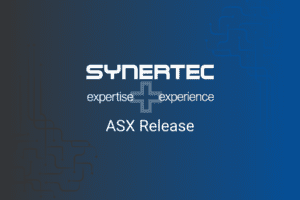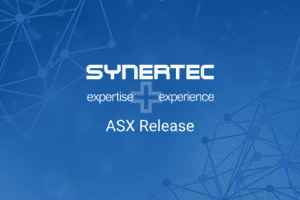SYNERTEC CORPORATION LIMITED
ARBN 161 803 032
Corporate Governance Statement
The Board of Directors of Synertec Corporation Limited are responsible for the corporate governance of the consolidated entity. The Board guides and monitors the business and affairs of Synertec Corporation Limited on behalf of the shareholders by whom they are elected and to whom they are accountable. The Board supports the ASX Corporate Governance Principles and Recommendations (4th Edition) (“Principles and Recommendations”) developed by the ASX Corporate Governance Council
(CGC).
The Principles and Recommendations set out corporate governance practices for entities listed on the ASX that in the CGC’s view are likely to achieve good governance outcomes and meet the reasonable expectations of most investors in most situations.
The Board welcomes the changes in the 4th Edition Principles that reflects global developments in corporate governance. This Corporate Governance Statement was current as at 30 June 2021 and has
been approved by the Board.
This Corporate Governance Statement is an opportunity to demonstrate that the Board and management are attuned to the importance of having proper and effective corporate governance arrangements and to communicate the robustness of our approach to corporate governance.
During the fiscal 2021 financial year the Company’s practices were compliant with the existing 3rd Edition
Principles.
Following is a summary of the Company’s compliance with the ASX Principles and Recommendations.
Principle 1 – Lay solid foundations for management and oversight
1.1 Role and Responsibilities of the Board
The role of the Board of Synertec Corporation Limited is as follows:
- Representing and serving the interests of shareholders by overseeing and appraising the strategies, policies and performance of the Company. This includes overviewing the financial and human resources the Company has in place to meet its objectives and the review of management performance;
- Protecting and optimising Company performance and building sustainable value for shareholders in accordance with any duties and obligations imposed on the Board by law and the Company’s constitution and within a framework of prudent and effective controls that enable risks to be assessed and managed;
- Responsible for the overall Corporate Governance of Synertec Corporation Limited and its controlled entities, including monitoring the strategic direction of the Company and those entities, formulating goals for management and monitoring the achievement of those goals;
- Setting, reviewing and ensuring compliance with the Company’s values (including the establishment and observance of high ethical standards); and
- Ensuring shareholders are kept informed of the Company’s performance and major developments affecting its state of affairs.
Responsibilities and functions of the Board include:
- selecting, appointing and evaluating from time to time the performance of, determining the remuneration of, and planning for the successor of, a chief Executive officer;
- reviewing procedures in place for appointment of senior management and monitoring of its performance, and for succession planning;
- input into and final approval of management development of corporate strategies, including setting performance objectives and approving operating budgets;
- reviewing and guiding systems of risk management and internal control and ethical and legal
- compliance. This includes reviewing procedures in place to identify the main risks associated with the Company’s businesses and the implementation of appropriate systems to manage these
risks; - monitoring corporate performance and implementation of strategies and policies;
- approving major capital expenditures, acquisitions and divestitures, and monitoring capital management;
- monitoring and reviewing management processes in place aimed at ensuring the integrity of financial and other reporting;
- monitoring and reviewing policies and processes in place relating to occupational health and safety, compliance with laws, and the maintenance of high ethical standards; and
- performing such other functions as are prescribed by law or are assigned to the Board.
In carrying out its responsibilities and functions, the Board may delegate any of its powers to a Board Committee, a Director, employee or other person subject to ultimate responsibility of the Directors under the Australian Corporations Act 2001 (Cth).
Matters which are specifically reserved for the Board or its committees include the following:
- appointment of a Chair;
- appointment and removal of the CEO, CFO and Company Secretary;
- appointment of Directors to fill a vacancy or as additional Director;
- establishment of Board committees, their membership and delegated authorities;
- approval of dividends;
- development and review of corporate governance principles and policies;
- approval of major capital expenditures, acquisitions and divestitures in excess of authority levels delegated to management;
- calling of meetings of shareholders; and
- any other specific matters nominated by the Board from time to time
The Board is responsible for the overall corporate governance of the Company and its subsidiaries including ensuring the integrity of internal control and management information systems. It is also responsible for approving and monitoring financial and other reporting.
The Board has adopted a Board charter that formalises its roles and responsibilities and defines the matters that are reserved for the Board and specific matters that are delegated to management.
The Board charter which may be viewed and downloaded from the Company’s website.
1.2 Directors Checks
The Company undertakes appropriate checks before appointing or putting-forward to shareholders a candidate for election, as a Director. These include checks on the character, experience, education, criminal record and bankruptcy history.
The Company provides shareholders with all material information in its possession relevant to a decision on whether or not to elect or re-elect a Director. Directors’ details are included in the notice of meeting at which the election of the Director is to be held, Company website and within the Annual Report.
Directors are required to provide consent for the Company to perform such checks. Directors’ are required to provide details of other commitments and an indication of time involved, and specifically acknowledge that they have sufficient time to fulfill their duties as a Director of the Company.
1.3 Written Agreement with each Director and Senior Executive
On appointment of a Director, the Company issues a letter of appointment setting out the terms and conditions of appointment to the Board.
On appointment of a senior Executive, the Company issues an employment agreement which addresses the role and responsibilities of individual.
The Board has adopted a Delegations of Authority that sets limits of authority for Executives and officers.
1.4 Company Secretary
The Company Secretary reports directly to the Board through the Chairperson on all matters to do with the proper functioning of the Board.
1.5 Diversity
At the core of Synertec Corporation Limited’s diversity policy is a commitment to equality and respect. The Company is committed to providing an inclusive workplace and recognises the value of individuals with diverse skills, values, backgrounds and experiences will bring to the Company. Diversity is recognising and valuing the unique contribution people can make because of their individual background and different skills, experiences and perspectives. People differ not just on the basis of race and gender, but also other dimensions such as lifestyle, education, physical ability, age and family responsibility.
The Board has undertaken a review of the mix of skills and experience on the Board in light of the Company’s principal activities and direction, and has considered diversity in succession planning. The Board considers the current mix of skills and experience of members of the Board and its Executive officers is sufficient to meet the requirements of the Company. The Company will establish measurable objectives for achieving gender diversity when it has grown to a point where it is appropriate to do so.
A Diversity policy may be viewed and downloaded from the Company’s website.
1.6 Directors’ and Senior Executive Performance Evaluation
Evaluation of the performance of the Board, its committees and senior Executives/officers is required under the Board Charter and the charter of the Remuneration and Nomination Committee. This includes supporting ongoing education of Directors and Executives/officers for the benefit of the Company.
The Chairperson is responsible for ensuring regular reviews of the Board, its committees and individual members. The process for which includes formal and informal interviews, the goals of which are to identify improvements to Board processes and procedures.
The performance of Executive officers is reviewed annually by the Board. The process for evaluating the performance of Executive/officers is for the Board to measure performance against objective benchmarks including operational or financial milestones.
Principle 2 – Structure the Board to add value
2.1 Remuneration and Nomination Committee
The Remuneration and Nomination Committee consist of the three independent Directors of the Board. The Committee is chaired by an independent Director.
Where a vacancy exists, members of the Remuneration and Nomination Committee will recommend suitable candidates after having undertaken a review of the necessary and desirable competencies of the candidate and then recommends to the Board as a whole. The Chairperson of the Board will then make the necessary approach to any potential candidates. The skills and experience of the Directors allow the Board to act in the best interests of shareholders.
The charter of the Remuneration and Nomination Committee which may be viewed and downloaded
from the Company’s website.
2.2 Board Skill Matrix
The Board has procedures in place to review and assess the skills and competencies of its members. During the period under review, the Board members’ skill matrix includes both management and technical skill sets, which the Board considers sufficient to meet the present requirements of the Company. The Company will review the skills matrix at appropriate junctures.
An appropriate mix of director skills and diversity is required to oversee the Company’s strategic direction, opportunities, and challenges at all stages of its development. When considering the appointment of new directors, the Board seeks to recruit individuals with complementary skills, professional qualifications, and experience. In support of this, the Board applies a skills assessment to guide its succession planning and director recruitment agenda.
When determining the appropriate mix of skills and diversity amongst directors, the Board considers Synertec’s strategic objectives and long-term shareholder wealth drivers. The following strategy statements summarise the current direction of the business and influence the skills and experience required at Board level to oversee its implementation.
- To be a diversified technology design and development growth company enabling a low carbon future through innovative technology solutions through
- commercialisation of scalable, environmentally friendly and energy efficient technology for global markets in energy, critical infrastructure and advanced manufacturing
- innovative partnerships with a portfolio of blue-chip customers.
- Synertec is proactively participating in the world’s transition to a low carbon economy in a practical way for the benefit of future generations.
- Synertec is creating wealth for shareholders through delivery of innovative engineered technology solutions and projects in key markets throughout the world.
These strategy statements imply a requirement for skills at the Board level particularly in the areas of health and safety, business strategy, finance and capital markets, engineering, international experience, project management, and business development oversight.
The skills and experience mix of the four current directors is summarised in the following table. The Board considers that those fields where fewer than two directors bring relevant skills and experience would necessitate external support to the Board from individuals or groups on a contractual basis. As the Company’s projects move beyond ‘development’ stage into the ‘growth’ stage, the Board will continue to review its skills to consider those additional skills and experience that is required to oversee those activities.
Table – Summary of Board Skills Matrix


Board renewal
The Board has reviewed its need for renewal and succession planning considering the Company’s direction, strategy, and challenges. As Synertec continues to transition from ‘development stage’, where skills in technology and project development are paramount, to a ‘growth period’ involving the execution of larger and riskier projects across various market sectors, the Board considers that the composition of the Board reflects the necessary skills to facilitate this transition.
- The Board is currently comprised of four directors, half of which are NED’s, both of whom are classified as independent.
- With Synertec’s focus on Australian and Asian markets, the Board make-up is Australian and Asianbased, and strengthens the Board’s skills and experience in energy, infrastructure, pharmaceutical, finance, contract negotiation and regulatory matters having direct knowledge of the engineering, energy, infrastructure and/or pharmaceutical markets in Australia and Asia.
2.3 Directors Independence
Board composition is guided by the following principles:
- a minimum of three Directors, with a broad range of business expertise;
- at least 50% non-Executive Directors;
- at least 50% independent Directors;
- an independent non-Executive Director as Chairperson of the Board; and
- the roles of Chair and Chief Executive Officer should not be exercised by the same individual.
The Company’s constitution governs the regulation of meetings and proceedings of the Board. The Board determines its size and composition, subject to the terms of the constitution.
In accordance with the definition of independence below, and the materiality thresholds set, the following Directors of the Company, forming half of the Board, are considered to be independent:
Name
Dennis Lin
Leeanne Bond
Position
Non-Executive Director & Chairperson
Non-Executive Director
An Independent Director is a Director who is not a member of management (a Non-Executive Director)
and who:
- holds less than five per cent of the voting shares of the Company and is not an officer of, or otherwise associated, directly or indirectly, with a shareholder of more than five per cent of the voting shares of the Company;
- has not within the last three years been employed in an Executive capacity by the Company or another group member, or been a Director after ceasing to hold any such employment within the last three years has not been a principal or employee of a material* professional adviser or a material* consultant to the Company or another group member;
- is not a material* supplier or customer of the Company or another group member, or an officer of or otherwise associated, directly or indirectly, with a material* supplier or customer;
- has no material* contractual relationship with the Company or another group member other than as a Director of the Company; and
- is free from any interest and any business or other relationship which could, or could reasonably be perceived to, materially* interfere with the Director’s ability to act in the best interests of the Company.
- the Board considers, ‘material’, in this context, to be where any Director related business relationship has represented, or is likely in future to represent the lesser of at least 10% per cent of the relevant segment’s or the Director related business’ revenue. The Board considered the nature of the relevant industries’ competition and the size and nature of each Directorrelated business relationship, in arriving at this threshold.
The Board only considers Directors to be independent where they are independent of management and free of any business or other relationship that could materially interfere with or could reasonably be
perceived to interfere with the exercise of their unfettered and independent judgment. The Board regularly reviews the independence of each Director in light of interests disclosed to the Board from time to time.
The Board does not believe that it should establish a limit on tenure for a Director other than stipulated in the Company’s constitution. While tenure limits can help to ensure that there are fresh ideas and viewpoints available to the Board, they hold the disadvantage of losing the contribution of Directors who have been able to develop, over a period of time, increasing insight into the Company and its operations and, therefore, an increasing contribution to the Board as a whole.
2.4 Majority of the Independent Directors
In accordance with the definition of independence above, and the materiality thresholds set, at least half of Directors of the Company are considered to be independent.
2.5 Chairperson of the Board
Dennis Lin is the Non-Executive Chairperson of the Board and he is independent.
The roles of Chair and Chief Executive Officer should not be exercised by the same individual.
2.6 Induction and Professional Development
The Company has a program for inducting new Directors. This induction covers all aspects of the Company’s business, financial, corporate strategy, the rights and duties of a Director and the roles and operation of the Board Committees.
Directors are encouraged to attend Director training and professional development courses, as may be required to enable them to develop and maintain the skills and knowledge needed to perform their role as Directors effectively. There are procedures in place, agreed by the Board, to enable Directors in furtherance of their duties to seek independent professional advice at the Company’s expense.
2.7 Independent professional advice and access to Company information
Each Director has the right of access to all relevant Company information and to the Executive officers
and, subject to prior consultation with the chairperson, may seek independent professional advice at the Company’s expense. The Director must consult with an adviser suitably qualified in the relevant field, and obtain the chairperson’s approval of the fee payable for the advice before proceeding with the consultation. A copy of the advice received by the Director shall be made available to all other members of the Board.
Principle 3 – Act ethically and responsibly
The Board has adopted a code of conduct. The code establishes a clear set of values that emphasises a culture encompassing strong corporate governance, sound business practices and good ethical conduct. The Board reviews the code of conduct regularly to ensure appropriate standards of behaviour and professionalism. The Code of Conduct may be viewed and downloaded from the Company’s website
Principle 4 – Safeguard integrity in coporate reporting
4.1 Audit and Risk Management Committee
The Board has an Audit and Risk Management Committee which advises the Board on the establishment and maintenance of a framework of internal control, risk management and appropriate governance standards for the management of the Company.
The Audit and Risk Management Committee comprising of the following independent non-Executive
Directors:
Leeanne Bond
Dennis Lin
David Harris
Non-Executive Director & Chairperson
Non-Executive Director
Executive Director
The Audit and Risk Management Committee was established to advise the Board on the establishment and maintenance of a framework of internal control, risk management and appropriate governance standards for the risk management of the Company. All members including the chair of the Committee are independent Directors. In the opinion of the Board, the chair of the Committee is suitably qualified for the position.
The external auditor may be invited to attend meetings of the Audit and Risk Management Committee at the discretion of the committee. An assessment of the performance of the external auditor is conducted on an annual basis.
The charter and the relevant qualifications and experience of the members of the Audit and Risk Management Committee may be viewed and downloaded from the Company’s website.
4.2 CEO (MD) and CFO Declarations
The Company has a Managing Director (MD) that is employed full-time in the Company.
The Company has a Chief Financial Officer (CFO) that is employed full-time in the Company.
The Board has determined that the MD and CFO are the appropriate persons to make the declarations as required under section 295A of the Corporations Act and as per ASX recommendations.
These declarations state that, in their opinions, the financial records of the Company have been properly maintained and that the financial statements comply with the appropriate accounting standards and give a true and fair view of the financial position and performance of the Company and that the opinion has been formed on the basis of a sound system of risk management and internal control which is operating effectively
4.3 External Auditor
The Company’s external auditor attends the Company’s Annual General Meeting and is available to answer shareholder questions about the conduct of the audit and the preparation and content of the Auditor’s Report.
Principle 5 – Make timely and balanced disclosure
Continuous disclosure policy
The Directors are committed to keeping the market fully informed of material developments to ensure compliance with ASX listing rules and the Australian Corporations Act 2001. At each Board meeting specific consideration is given as to whether any matter should be disclosed under the Company’s Continuous Disclosure Policy. The chairperson, in conjunction with all Directors, is charged with the day to day disclosure to the market of any information in relation to the on-going activities of the Company.
The Company commits to:
- Ensuring that shareholders and the market are provided with timely and balances information
about its activities; - Complying with the general and continuous disclosure principles contained in governing exchange rules; and
- Ensuring that all market participants have equal opportunities to receive externally available information issued by the Company.
Company ASX releases are reviewed by Executive Directors, NEDs, and where applicable senior management prior to release to ensure:
- All releases are factually accurate, balanced, and objective;
- There is no material omission of information;
- Announcements are released in a timely manner; and
- Announcements comply with practices and procedures of the ASX Company Announcements Platform.
The Company Secretary ensures that at every Board meeting, continuous disclosure is on the agenda and that all directors have an opportunity to put forward any information that may need disclosure. On a monthly basis, the Company Secretary contacts all directors to ensure that they do not have any information or matters that need disclosure. The Continuous Disclosure Policy may be viewed and downloaded from the Company’s website.
Principle 6 – Respect the rights of security holders
The Company has adopted a Shareholder Communications Policy. The Company uses its website (www.Synertec.com.au), annual report, market announcements and media disclosures to communicate with its shareholders, as well as encourages participation at general meetings. The Shareholder Communications Policy may be viewed and downloaded from the Company’s website.
Principle 7 – Recognise and manage risk
7.1 Audit and Risk Management Committee
The Board has an Audit and Risk Management Committee which advises the Board on the establishment and maintenance of a framework of internal control, risk management and appropriate governance standards for the management of the Company. Information on the members and operation of the Committee is as disclosed in in section 4.1 above.
The Company’s risk management statement is within the charter of the Audit and Risk Management Committee which may be viewed and downloaded from the Company’s website.
The Board is responsible for the oversight of risk management in the Company. In the ordinary course of business, management monitors and manages these risks. Key operational and financial risks are presented to and reviewed by the Board at each Board meeting.
The Board identifies areas of risk within the Company and continuously undertakes a risk assessment of the Company’s operations, procedures and processes. The risk assessment is aimed at identifying the following:
- a culture of risk control and the minimisation of risk throughout the Company, which is being done through natural or instinctive process by employees of the Company;
- a culture of risk control that can easily identify risks as they arise and amend practices;
- the installation of practices and procedures in all areas of the business that are designed to minimise an event or incident that could have a financial or other effect on the business and its day to day management; and
- adoption of these practices and procedures to minimise many of the standard commercial risks, such as taking out the appropriate insurance policies, or ensuring compliance reporting is up to date.
7.2 Annual Risk Review
The overall audit and risk management framework is reviewed at least annually by the Audit and Risk Management Committee. The Audit and Risk Management Committee has reviewed and is satisfied with the audit and risk management framework of the Company for the current reporting period.
7.3 Internal Audit
The Company does not currently have an internal audit function, but through the Company’s risk management process, management is satisfied that it can evaluate and continually improve the effectiveness of its risk management and internal control processes. The Company’s Board of Directors periodically undertakes an internal review of financial systems and processes and where systems are considered to require improvement, these systems are developed. Authority delegations are reviewed annually by the Audit and Risk Management Committee. The Authority Delegation statement may be viewed and downloaded from the Company’s website.
7.4 Material Exposure to Safety, Economic, Environmental and Social Sustainability (SEES) Risks
The Board is regularly involved in discussions in relation to material exposure to economic, environmental and social sustainability risks facing the Company.
An important aspect of Synertec’s risk management framework includes the protection of our people and the people in surrounding communities in workplace health and safety. Our shared duty is to assure the health, security, and safety of people, the integrity and safe operation of our assets, and the protection of the environment. We accomplish this by setting clear expectations including target setting, training of our workforce, and empowering our workforce to stop work whenever they believe there is a danger to people, the environment, or the safe operation of our assets. Effective management of SEES risks is vital to
successful delivery of Synertec’s strategy, our long-term sustainability, and maintenance of our license to operate in the communities where we conduct business.
We work to avoid, mitigate, and minimise environmental impacts where we do business and we try to create mutually supporting economic and environmentally sustainable solutions.
Principle 8 – Remunerate fairly and responsibly
The Board has established a Remuneration and Nomination Committee comprising of a majority of
independent Directors.
Name:
Dennis Lin
Leeanne Bond
Michael Carroll
Non-Executive Director & Chairperson
Non-Executive Director
Executive Director
The role of the Committee is to assist and advise the Board in relation to the appointment of Directors to the Board, the formulation of succession planning generally and the formulation and review of remuneration policies. It is the Company’s objective to provide maximum stakeholder benefit from the retention of a high-quality Board and Executive team by remunerating Directors and key management personnel fairly and appropriately with reference to relevant employment market conditions. To assist in achieving this objective, the Committee, in assuming the responsibilities of assessing remuneration to employees, linking the nature and number of Directors’ and key management personnel’s remuneration to the Company’s financial and operational performance. The expected outcomes of the remuneration structure are:
- retention and motivation of key management personnel;
- attraction of high-quality management to the Company; and
- performance incentives that allow key management personnel to share in the Company’s success.
The charter of the Remuneration and Nomination Committee and the process for selecting and appointing new Board members may be viewed and downloaded from the Company’s website. Details of the Company’s remuneration policy are contained in the Remuneration Report within the Company’s latest Annual Report.
